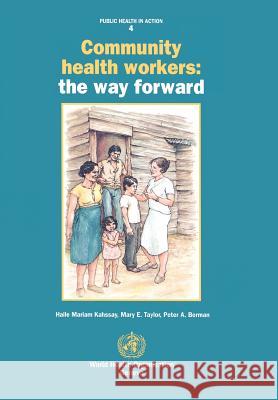Community Health Workers: The Way Forward » książka
Community Health Workers: The Way Forward
ISBN-13: 9789241561907 / Angielski / Miękka / 1998 / 73 str.
This book examines the present and future role of community health workers (CHW) as part of ongoing efforts to develop sustainable health systems and improve public health. Noting that many programs based on the use of community health workers have fallen short of initial expectations, the book draws on numerous evaluations conducted over the past three decades to identify problems, explore their roots, and propose concrete solutions. Information ranges from advice on the composition and functions of village health committees through a discussion of the effect of cost recovery programs on community participation, to the simple reminder that programs that were never correctly implemented should not be dismissed as ineffective. Throughout lessons learned from past experiences are discussed in terms of their relevance to market-oriented reforms that are currently changing the health sector.
The analysis is presented according to three main groups of factors known to have an impact on the performance of CHW programs. Attitudes are considered in the first chapter, which aims to define the actions health authorities can take to improve the attitudes of health workers and communities towards each other. Proposals include changes in selection criteria, curricula, teaching methods, on-the-job training, and supervision. Ways to increase community participation are also discussed. Chapter two focuses on the management and structure of district health systems as an area where organizational reform could have a significant impact on the success of CHW programs.
Three components of the district health system are given particular attention: health service structure, health management structure, and health development structure. Practical advice is given for improving the functions of village health committees securing community participation and involving traditional healers.
The final chapter, on resources, considers the important issues of remuneration, planning and budgeting for programs, and mechanisms for securing financing from governments, communities, and the private sector. Experiences from Thailand and Jamaica are used to explore methods for assessing program costs. The book concludes with a call for continuing international commitment to the CHW concept and a discussion of the main challenges likely to confront programs in the future.
.











